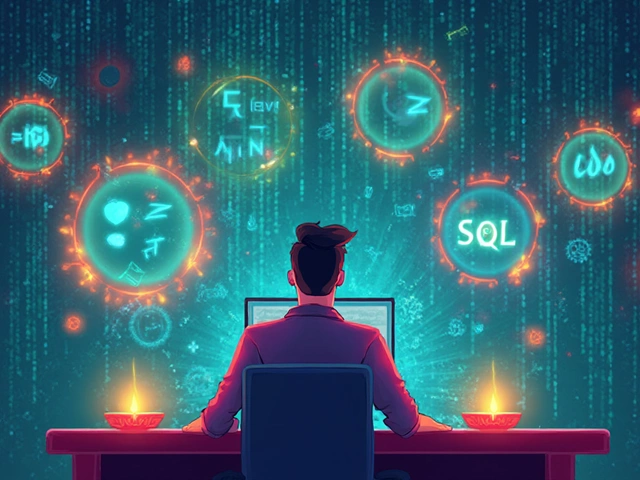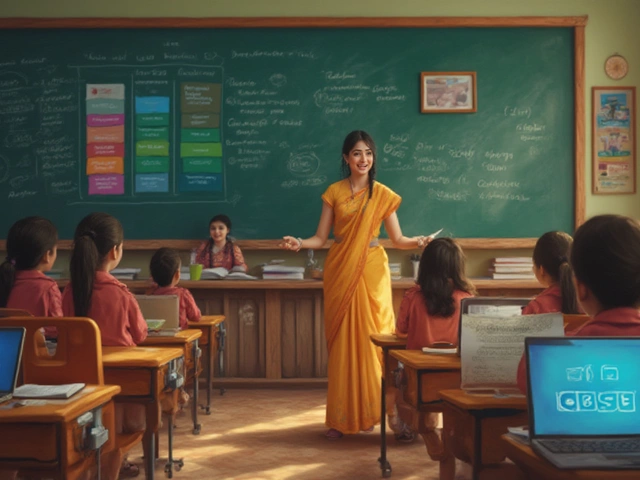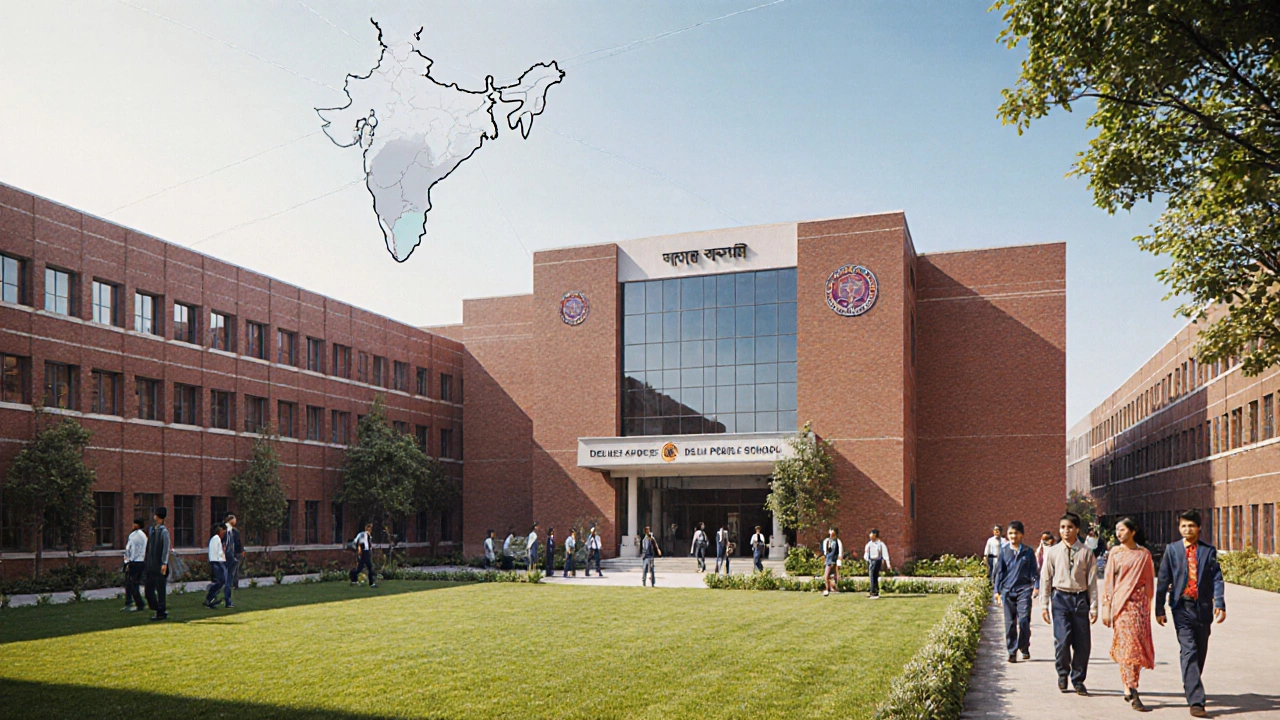
Key Takeaways
- Delhi Public School (DPS) campuses can be affiliated with either the ICSE or CBSE board, depending on location and management decision.
- ICSE, overseen by the Council for the Indian School Certificate Examinations, focuses on in‑depth language and science study.
- CBSE, run by the Central Board of Secondary Education, emphasizes a broader curriculum and national entrance‑exam alignment.
- Most DPS senior schools in Delhi, NCR and North India follow CBSE, while many DPS branches in South and East India adopt ICSE.
- Choosing the right board for a child depends on future goals, learning style, and the specific DPS campus you’re targeting.
Understanding Delhi Public School and Its Board Options
When parents ask “Is Delhi Public School a chain that follows a single board across all its campuses?”, the short answer is no. DPS is a network of over 200 schools run by the Delhi Public School Society a non‑profit organization founded in 1949. Each school decides its board affiliation-ICSE or CBSE-based on regional demand, faculty expertise, and the strategic vision of the local management committee.
What Is the ICSE Board?
The Indian Certificate of Secondary Education (ICSE) is administered by the Council for the Indian School Certificate Examinations (CISCE). It is recognized for its rigorous curriculum that places a strong emphasis on English language proficiency, project‑based learning, and a balanced mix of sciences, arts, and humanities. ICSE exams are taken at the end of Class10, and the subsequent Indian School Certificate (ISC) exam is taken at the end of Class12.
- Scope: Primarily English‑medium schools across India.
- Assessment style: Detailed theory papers, internal assessments, and practicals.
- Typical subjects: English, a second language, mathematics, physics, chemistry, biology, history, geography, economics, and optional electives such as computer applications.
What Is the CBSE Board?
The Central Board of Secondary Education (CBSE) is a national-level board governed by the Ministry of Education, Government of India. It aims to prepare students for competitive exams such as JEE, NEET, and UPSC by focusing on a more streamlined syllabus and frequent internal assessments.
- Scope: Over 22,000 schools in India and abroad.
- Assessment style: Objective questions, continuous evaluation, and a strong emphasis on mathematics and science.
- Typical subjects: English, Hindi or another regional language, mathematics, physics, chemistry, biology, and optional subjects like computer science, physical education, or economics.
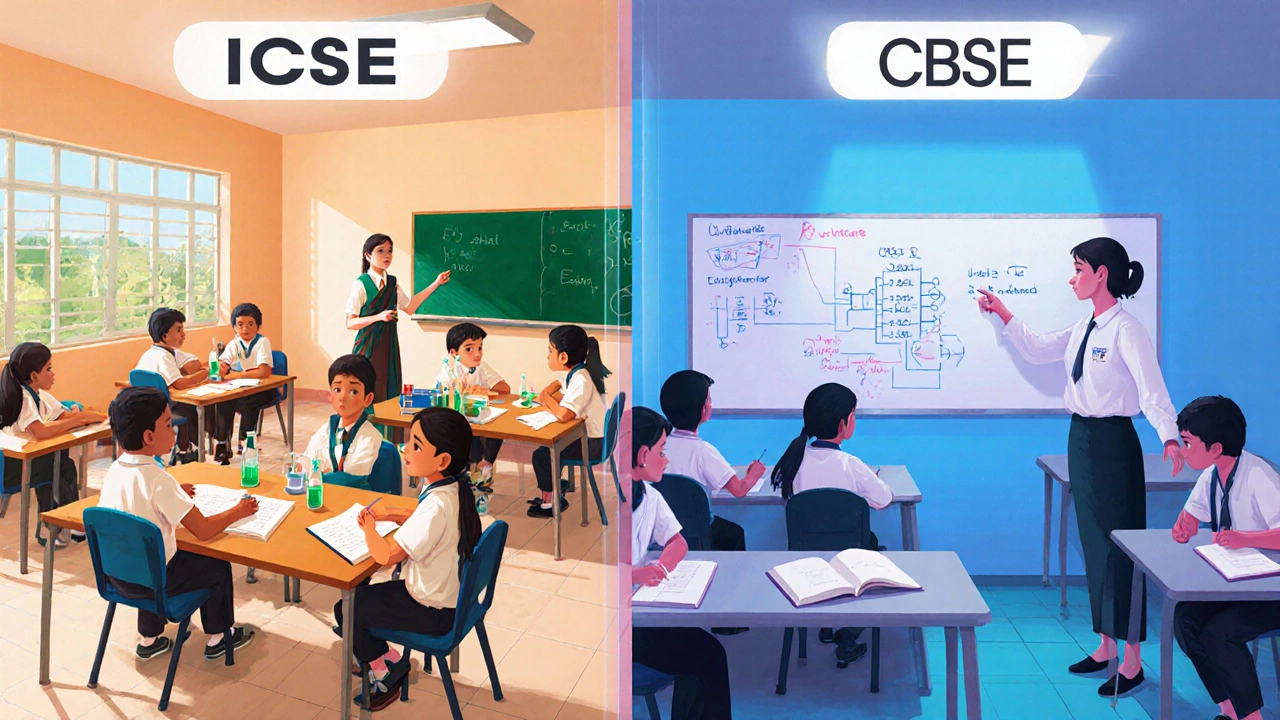
How DPS Chooses Between ICSE and CBSE
Each DPS campus follows a systematic process to select its board:
- Market research: The local committee surveys parental preference and college‑admission trends in the region.
- Faculty readiness: Teachers are evaluated for expertise in either the ICSE or CBSE curriculum.
- Infrastructure audit: Laboratories, libraries, and ICT labs are checked against board‑specific requirements.
- Affiliation application: The school submits a detailed application to either CISCE or CBSE, providing documents on infrastructure, staff qualifications, and student intake.
- Approval & implementation: Once the board grants affiliation, the school aligns its syllabus, exam schedule, and teacher training accordingly.
Because the process is campus‑specific, you’ll find both board types co‑existing under the DPS brand.
ICSE vs CBSE: Quick Comparison
| Attribute | ICSE (CISCE) | CBSE (Central Board) |
|---|---|---|
| Governing body | Council for the Indian School Certificate Examinations | Ministry of Education, Government of India |
| Exam focus | Depth of concepts, language mastery, project work | Broad coverage, analytical problem‑solving, entrance‑exam alignment |
| Assessment style | Long‑form theory papers, internal assessments, practicals | Objective questions, periodic tests, continuous assessment |
| Subject flexibility | More electives (e.g., environmental studies, computer applications) | Standard set of subjects; optional electives but fewer than ICSE |
| Recognition for higher studies | Strong for liberal arts, international universities | Preferred for engineering, medical, and government entrance exams |
| Typical DPS regions using this board | South India (e.g., DPS Chennai, DPS Bangalore), East India (e.g., DPS Kolkata) | North India (e.g., DPS Delhi, DPS Noida), many metro‑city branches |
Which DPS Campus Follows Which Board? - Real‑World Examples
Below are a few well‑known DPS branches and their current board affiliation (as of 2025):
- DPS Delhi - CBSE (Class10 and 12 board exams are CBSE)
- DPS Noida - CBSE
- DPS Bangalore - ICSE (both the Class10 ICSE and Class12 ISC exams)
- DPS Chennai - ICSE
- DPS Kolkata - ICSE
- DPS Mumbai (Powai) - CBSE
Note that the board can change if the school re‑applies for a different affiliation, so always verify with the specific campus before enrollment.
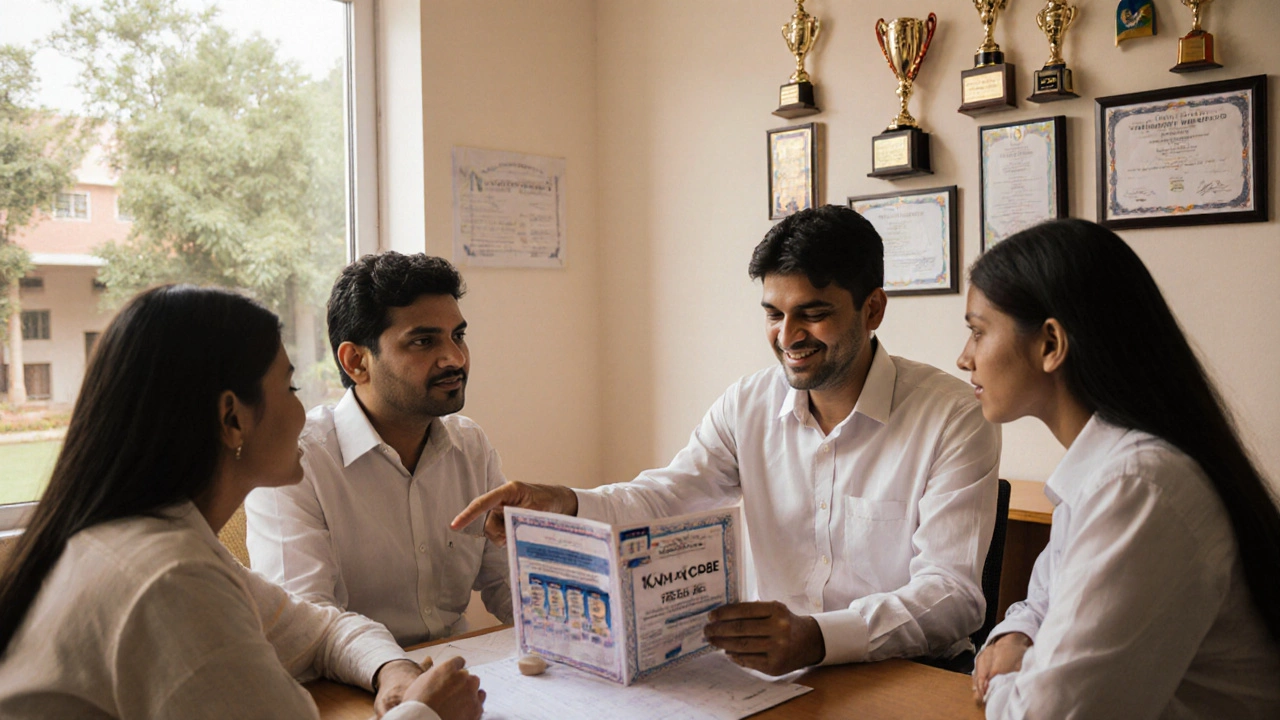
Decision Guide: Choosing the Right Board for Your Child
Use the following checklist to decide which DPS board fits your child’s goals:
- Future career path: Engineering or medical aspirants often prefer CBSE because its syllabus matches JEE and NEET patterns.
- Learning style: If your child thrives on detailed explanations, analytical essays, and project work, ICSE may be a better fit.
- College target: International universities and liberal‑arts programs value the strong English foundation of ICSE.
- Location convenience: Choose the nearest campus with the desired board to avoid long commutes.
- Extracurricular balance: CBSE schools often allocate more time for sports and co‑curricular activities, while ICSE schools emphasize academic depth.
After you shortlist campuses, visit the school, talk to teachers, and request the latest affiliation certificate to confirm the board status.
Next Steps for Parents
- Visit the official DPS website and locate the “Affiliation” page for your chosen branch.
- Ask the admission office for a copy of the latest ICSE/CISCE or CBSE affiliation letter.
- Arrange a campus tour: observe labs, libraries, and classroom teaching styles.
- Consider a trial class (many DPS schools offer one‑week demos) to gauge your child’s comfort level.
- Finalize the board based on the above checklist and submit the admission form before the deadline.
Frequently Asked Questions
Does every Delhi Public School follow the same board?
No. Each DPS campus chooses its board-ICSE or CBSE-based on regional demand, faculty expertise, and the decision of the local management committee.
How can I verify which board a specific DPS campus follows?
Visit the school’s official website or contact the admission office for the latest affiliation certificate. The certificate will state whether the school is affiliated with CISCE (ICSE) or CBSE.
Is the ICSE syllabus harder than CBSE?
ICSE is generally considered more detailed, especially in English and sciences, with a greater emphasis on project work. CBSE is broader and aligns closely with national entrance exams. Difficulty varies with the student’s strengths.
Can a DPS school switch its board after being established?
Yes, but it requires a formal application, infrastructure upgrades, and approval from the new board. Such changes are rare and usually announced well in advance.
Which board is better for students aiming for overseas universities?
ICSE’s strong focus on English language and analytical writing is often favored by overseas admissions committees, though CBSE students also succeed with proper preparation.

